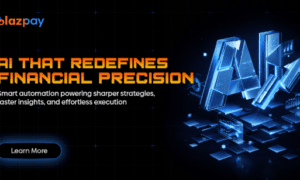As of September 2025, the University of Oxford have announced that they are the first UK higher education institution to provide access to ChatGPT for all its faculty and students after a year-long trial. This decision has sparked debate: why would one of the world’s most prestigious universities encourage their students to use a tool often associated with “cheating” on essays or maths problems? Would this change undermine the academic rigour and reputation associated with the ancient institution?
There are a few details to keep in mind here, perhaps the most important being that the version of ChatGPT that Oxford staff and students have access to is not the same as the commercial version the wider population uses. Instead, the university uses ChatGPT Edu, which was specifically developed by OpenAI for educational purposes. It has been designed to have increased privacy and security to ensure that the data inputted into the chatbot remains associated with the original institutions and cannot be stolen.
Ethical Challenges: Tool or Shortcut?
However, even with fast adoption of AI, there are glaring ethical concerns around its normalisation in higher education and it’s up to universities to decide which restrictions to introduce to maintain academic quality. Does AI usage undermine genuine learning and understanding? Where is the line between using AI as a beneficial tool versus having it do the critical work for you, thus losing the benefits of the exercise of writing an essay or solving a physics problem? Will AI mean that students lose foundational skills like writing, reading, and problem solving if they rely too strongly on the technology before they develop those skills? These are all important considerations and questions to answer in the coming years as the effects of AI on education become more clear.
Preparing Students for an AI Future
Outside academia, AI is already reshaping the professional world. In the job market, employers are increasingly looking to hire graduates with AI skills. Oxford’s initiative prepares its students to succeed in an evolving job market.
Jayna Devani, OpenAI’s international education lead, said that “By making ChatGPT Edu available for everyone, Oxford is equipping its students, academics and staff with the AI skills, tools and training they need to truly benefit from this transformative technology and succeed in the AI era.” This, unsurprisingly, is clearly an optimistic view of AI, where the technology is viewed as a catalyst rather than a crutch.
How Will Education Change?
With information so freely available, the value of education shifts and the definition of learning is redefined from information recall or memorisation to analysis and critical evaluation. Still the challenge remains: it is still exceedingly easy to use AI to write essays or provide solutions to mathematics problems, so the concern is whether students use AI as a powerful tool to aid in learning, or a shortcut to get the passing grade. Naturally, it is incredibly difficult to draw the line and universities are still experimenting with ways to ensure that students can use AI and still learn the most important skills.
Oxford’s stance is a likely indicator that other higher education institutions will follow their example in offering AI tools to their students and faculty. This is an enormous U-turn because since the launch of ChatGPT, universities initially reacted to AI with complete bans; however, this resistance was always a losing battle due to increased chatbot sophistication, accessibility, and ease of use of AI tools. Now the conversation revolves not around whether students should use AI at all, but how they should use it responsibly for higher education.
This approach, therefore, makes it clear that Oxford are treating AI as a catalyst and a tool rather than a crutch. In the next generation, the greatest minds will not be those who avoid AI, but rather those who know how to harness its power while retaining the human capacity for analysis, judgement and critical thinking. This is what Oxford is teaching its students to do.
Should Applicants Use AI?
While the University of Oxford encourages the use of AI for their current students, the same does not apply to university applications. Higher institutions still use AI and plagiarism checkers with increasing sophistication and accuracy. Admissions essays and personal statements require deep reflection into one’s motivations in pursuing a degree. No AI is going to understand your personal experiences and write a compelling narrative like you can. AI simply can’t replicate intellectual curiosity and a clear sense of purpose.
Conclusion
Higher education and the job market are changing in the most dramatic way since AI has become more mainstream and commercialised. Oxford’s move to provide ChatGPT Edu to all its faculty and students is a clear sign that they predict that the world will adapt to this technology for study and work, rather than ignoring or restricting its use. Future success, whether at Oxford or beyond, will belong to those who can think critically, adapt and balance innovation with integrity.



































